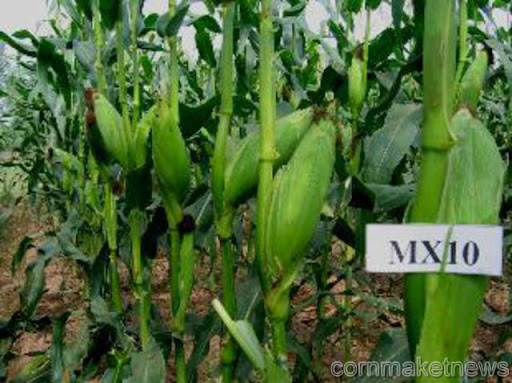 Corn buyers in Japan, the world’s largest importer, are delaying purchases of the grain after the March 11 earthquake and tsunami damaged ports in the nation’s northeast, suspending unloading operations from vessels, said Nobuyuki Chino, president of Unipac Grain Ltd.
Corn buyers in Japan, the world’s largest importer, are delaying purchases of the grain after the March 11 earthquake and tsunami damaged ports in the nation’s northeast, suspending unloading operations from vessels, said Nobuyuki Chino, president of Unipac Grain Ltd.
“Japanese companies have not made deals to buy corn since the quake hit the nation,” Chino, who has traded grains for three decades, said in a phone interview today. “They need to assess how demand for the grain may change after the incident.”
The country imports about 12 million metric tons of corn for feed production annually and secures about 90 percent of the grain from the U.S., the largest exporter. Japanese importers completed corn purchases for shipments through the first half of June before the quake, Chino said.
Japan may have lost about 20 percent of the nation’s feed production after the tsunami triggered by the earthquake flooded ports and feed production facilities, Eri Utamaru at the agriculture ministry’s livestock department said on March 14. Corn represents about half of Japan’s livestock feed output estimated at 24 million tons a year, she said.
Assessing Damage
“We are still assessing the extent of damage caused by the earthquake,” said Tetsuo Hamamoto, director at the Tokyo office of the U.S. Grains Council, said today by phone. “It is hard to tell how Japanese demand will change after the quake.”
Corn for May delivery dropped as much as 2 percent to $6.2350 a bushel on the Chicago Board of Trade, the lowest level since Jan. 12, before trading at $6.2875 at 2:24 p.m. Tokyo time.
Japan faces power blackouts, the risk of meltdowns at a nuclear power station, and a predicted death toll of more than 10,000 after the 9.0-magnitude temblor and seven-meter-high tsunami. A fire and aftershocks struck the crippled Fukushima Dai-Ichi nuclear power plant today, as officials battling to prevent a nuclear meltdown said fuel rods at two reactors may have been damaged.
Livestock growers in the quake-affected region and near the Fukushima power plant evacuated, leaving their animals in their farms, said Chino at Unipac Grain.
“Those animals are at the risk of dying without water and feed,” he said.
Zen-Noh, Japan’s largest corn buyer, plans to boost feed production in facilities that escaped damage from the March 11 earthquake and tsunami to ensure supplies to livestock farmers in northeast Japan.
Feed Production
“We will raise feed production in our facilities that are operating normally to recoup losses in plants damaged by the earthquake,” Hidetoshi Yamada at the farmers group’s public relations department said today in a phone interview.
Feed plants in the southern Japanese prefecture of Kagoshima and the northern Japanese island of Hokkaido continue normal operations, Yamada said. The group produces about 30 percent of Japan’s total livestock feed.
It may take six months for damaged feed plants and grain storage facilities in northeastern Japan to resume operations, Chino at Unipac Grain said. Before that, Japanese feed producers will increase output in other areas for shipments to growers of pigs, chickens and cows in the northeast, he said.


























0 comments